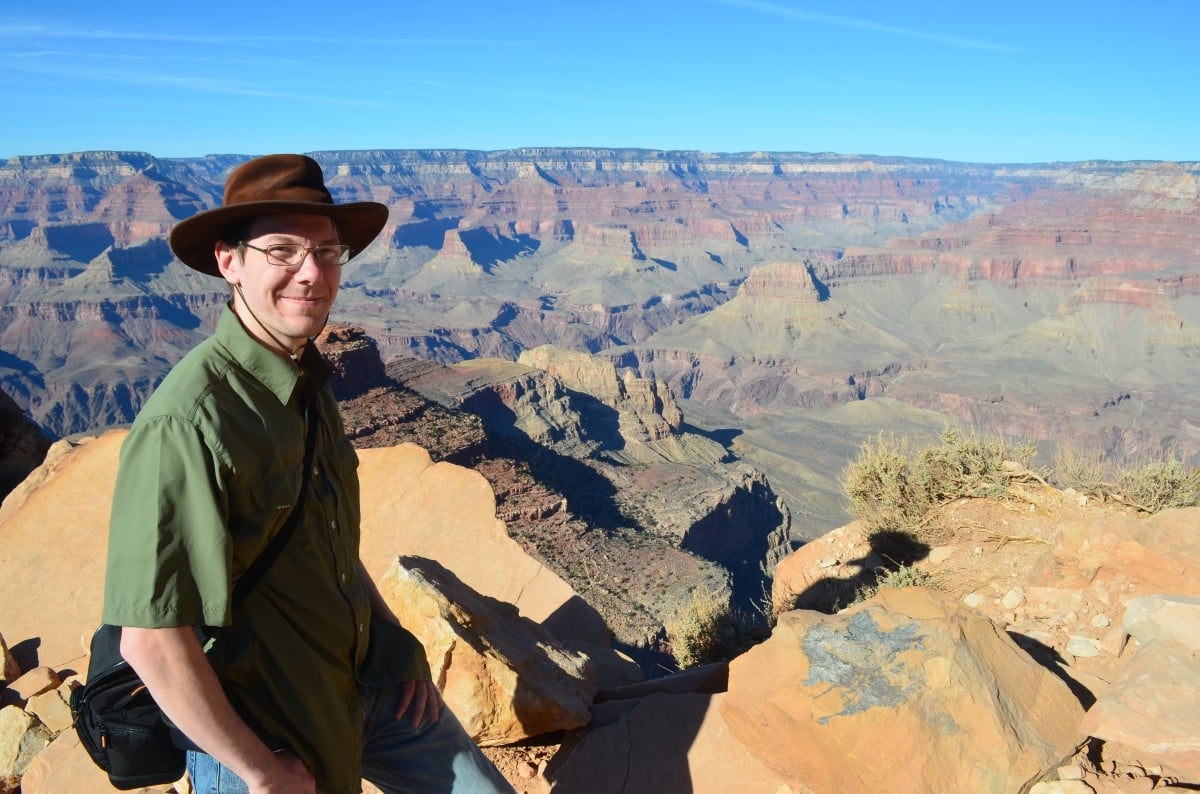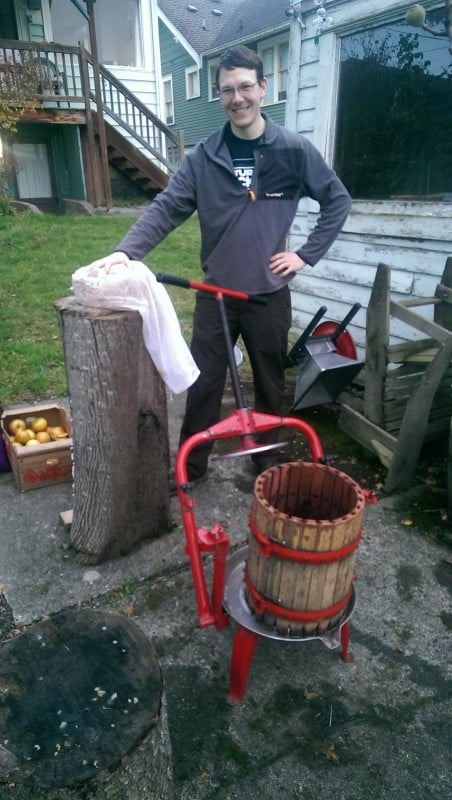Meet Isaac Emery, GFI environmental scientist

Isaac Emery, Ph.D., has always been passionate about environmental issues, especially when it comes to food and energy. While pursuing his bachelor’s degree at Whitman College, he took every environmental studies course the school offered as he pursued his degree in Biochemistry, Biophysics, and Molecular Biology. After college, he secured a job in medical science, studying the biochemistry of heart disease.
But his heart was with the environment, so he soon returned to environmental science, earning a Ph.D. in Agricultural and Biological Engineering from Purdue University.

After a series of biofuels projects with Argonne National Laboratory, Isaac held a postdoctoral fellowship at the Air Force Institute of Technology, where he examined the human health impacts of fuels, vehicles, and industrial systems.
Through this work, Isaac has used life cycle analyses (LCAs) to compare the merits and impacts of both innovative and conventional approaches to agriculture, spanning biofuels to urban agriculture.
As an environmental scientist for The Good Food Institute, Isaac is applying these skills to perhaps the most innovative approach to agriculture yet: creating real meat without factory farms or slaughterhouses.
Check out what drives Isaac to be at the forefront of this leading-edge development in food!
How did you first become aware of the detrimental impacts of meat production on the environment?
My goal at Purdue was to use my knowledge of biochemistry and genetics to develop a more efficient technology for making biofuels from agricultural waste, but I became fascinated with measuring the sustainability of different biofuel systems. Because most biofuel in the U.S. is made from corn, I learned a lot more than I expected to about farming practices for commodity crops. The vast majority of corn and soy we grow in the U.S. is fed to livestock, so factory farming and biofuels have a lot of overlapping environmental problems.
I recognized that in the study of agriculture, I could do the most good by focusing on food systems rather than energy, and I’m excited to be able to do that at GFI. Just last fall, I spoke with a class of 3rd graders about farming and what it’s like being a scientist. After my presentation, one little girl asked if I had ever saved the world using science. By studying clean meat at GFI, I feel like I’m being given the opportunity to potentially do just that!

You’ve studied the environmental effects of a variety of agricultural innovations. What makes you particularly interested in the study of clean meat?
It’s rare to come across a new technology that has so much potential to change the world. The system of factory farming we’ve developed here in the U.S. has led to significant problems for human health and the environment. Many of our agricultural resources are devoted to raising animals rather than directly feeding people, while millions of Americans and billions of people worldwide suffer from malnutrition. At the same time, we are putting incredible pressure on Earth’s ecological and physical systems through loss of habitat and pollution. So much excess fertilizer washes into the Gulf of Mexico from the Mississippi river that it forms a dead zone of thousands of square miles. Agricultural scientists have been hard at work to solve these problems for decades and made real progress, but each farm is different, so not every innovation works for every farmer.
Clean meat is so exciting because it could help us avoid all of these problems at once: We could produce just as much meat with fewer resources, create less pollution, and free up cropland to feed people rather than livestock.

What challenges are you facing as you embark on this study?
There are no shortage of challenges! It’s very difficult to accurately model the impacts of a technology that isn’t operating at commercial scale yet. Thankfully, there are many historical examples to learn from. Clean meat may be a revolutionary technology, but it is not the first revolutionary technology to scale up from the research bench to broad use. What we will have to pay the most attention to are the connections between systems——not only looking at what happens at the factory producing clean meat, but also where the feed stocks and energy come from and what happens to the waste.
It will also be important (and scientifically exciting) to think about the indirect impacts of a clean meat industry. If clean meat replaces a significant portion of meat consumption, freeing up land used for livestock feed, what will farmers choose to do with that land? If a clean meat facility requires a lot of power, where will the electricity come from? What could be the benefits of solar-powered meat production? We will have to pay close attention to these details to develop realistic scenarios.
How do you hope your work will influence the future of food?
There are so many opportunities in this work to better understand how to use our resources — land, water, and energy — to feed ourselves more healthily and efficiently. The lessons we learn will be valuable for the cellular agriculture movement, agricultural science, and industrial ecology.
So when you’re not exploring the interconnectivity of the world, what do you like to do for fun?
Running, brewing, and playing games are my main hobbies. I run mostly just to get outside and stay fit, but I do sign up for a few 5k or 10k races each year to satisfy my competitive streak. Ever since I learned to brew I’ve started a batch of orange mead each winter. The first batch turned out so well, I’ll always be trying to recreate it! Another favorite recipe is quince and apple hard cider. My favorite board games might be RoboRally and Betrayal at House on the Hill, but with the right crowd I’ll enjoy playing almost anything.


What about your favorite meal? Something sustainable, I surmise?
Of course! I enjoy walking or biking to farmer’s markets around Seattle to get fresh produce from local farmers. Cooking for friends and family is one of my favorite things, though I’m also a sucker for a pastry and good cup of coffee. I also recently tried the Impossible Burger at a holiday party. It was unbelievably meaty and even more convincing than I expected! I’m definitely looking forward to having it available more consistently in Seattle.
I still have to give clean meat a try though, and I expect that might become a favorite in the future!
We’ll plan a clean meat lunch meeting sometime soon, Isaac. Thanks for sharing your time and your thoughts!
Want to join Isaac in his quest to save the world with science? Apply to join The Good Food Institute’s SciTech team and check out our other open positions while you’re at it!

